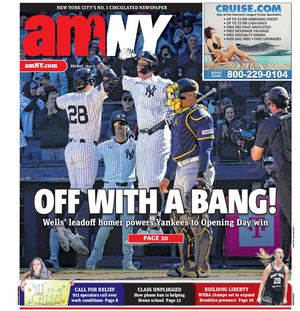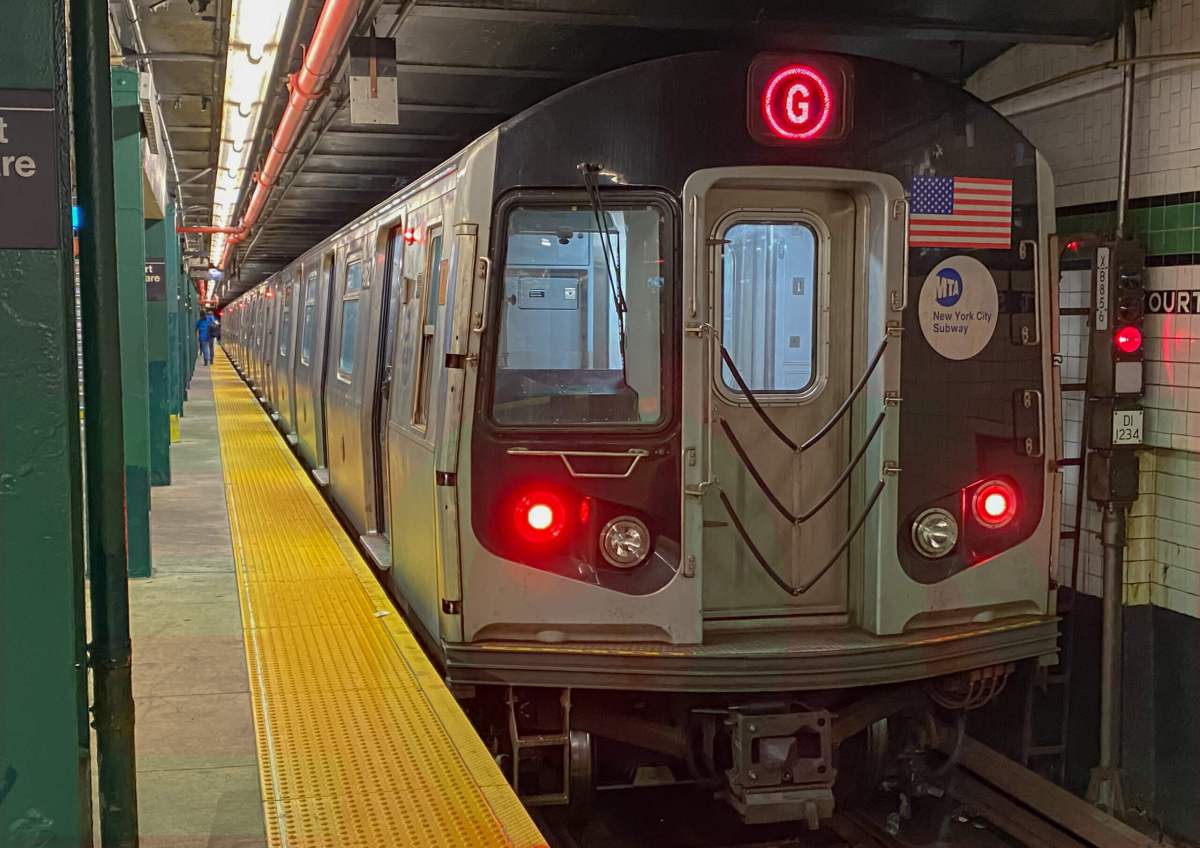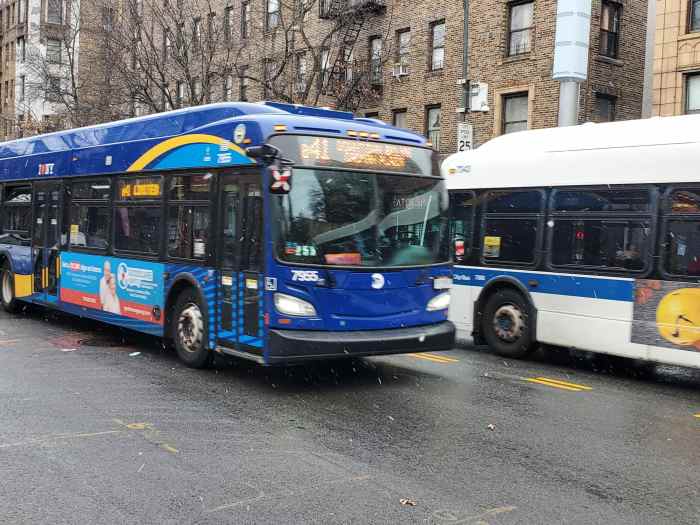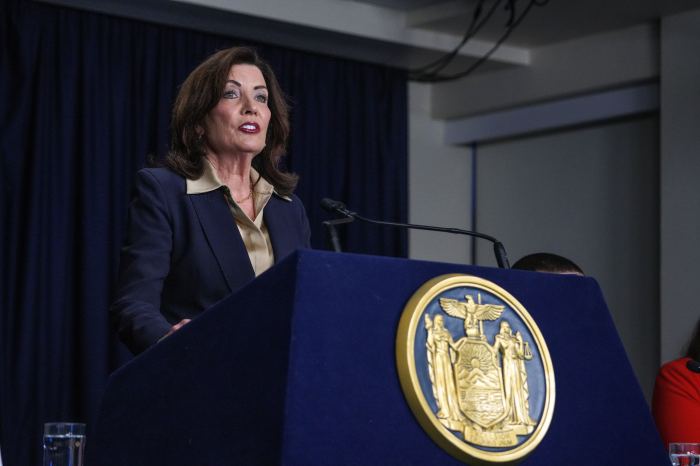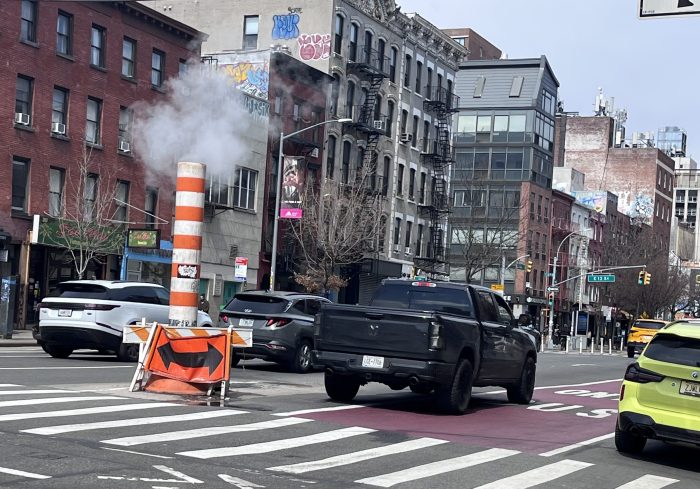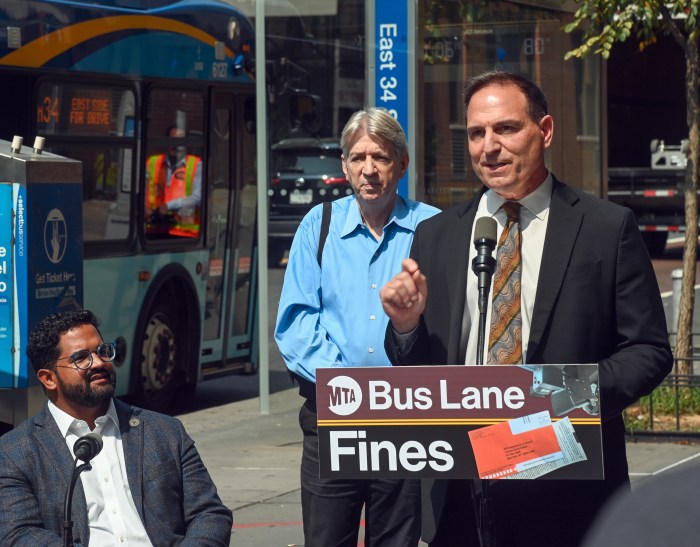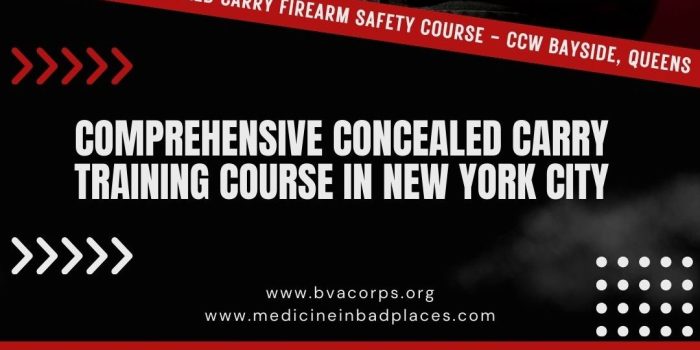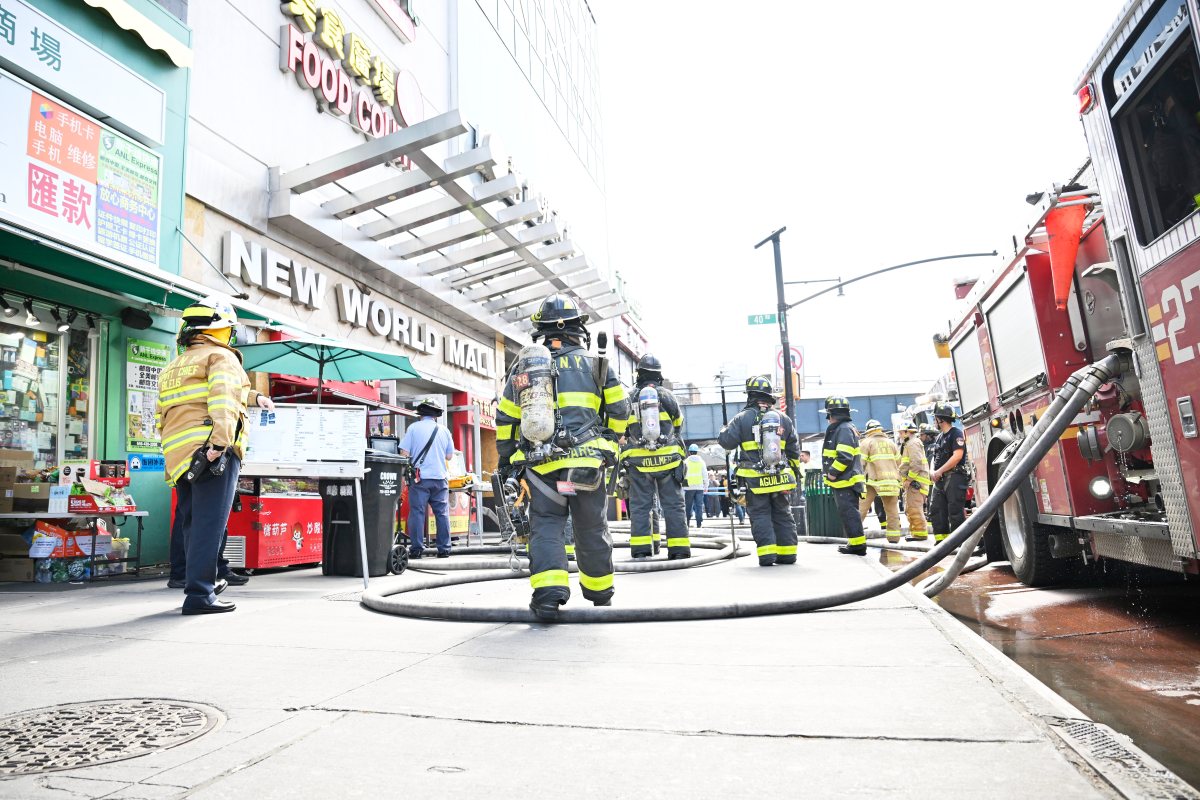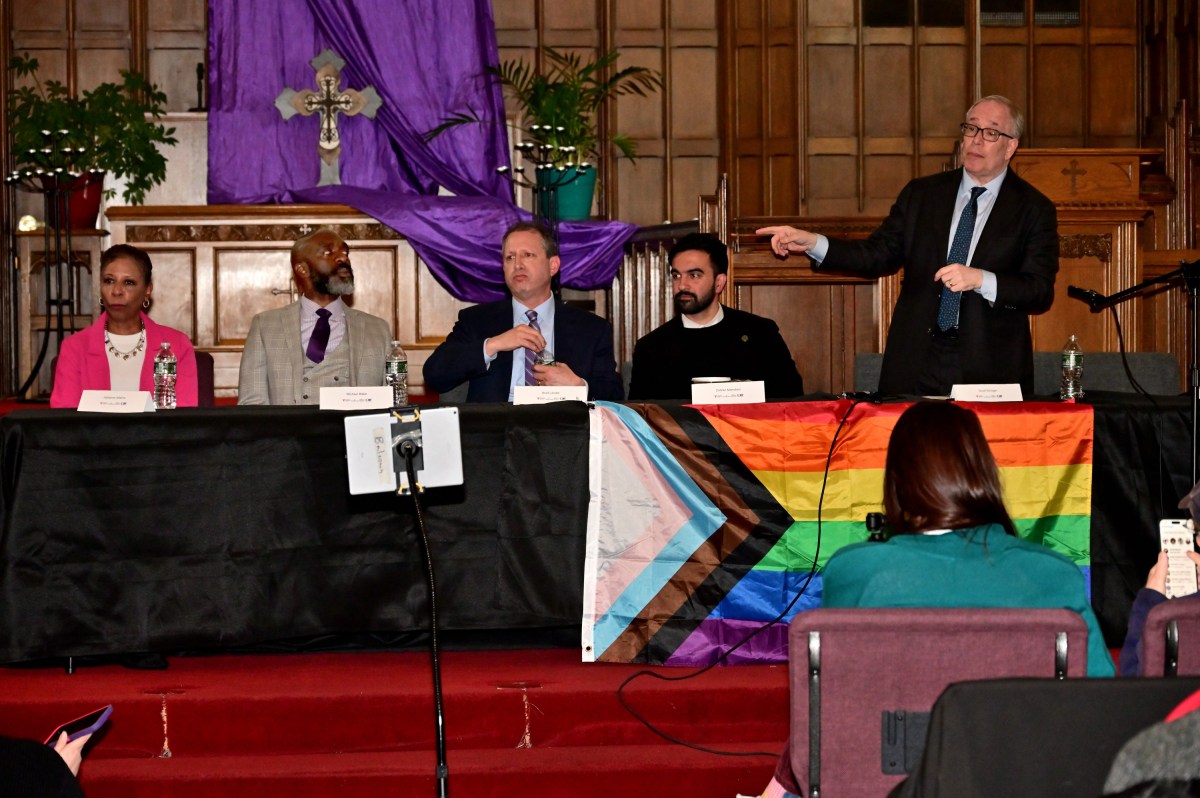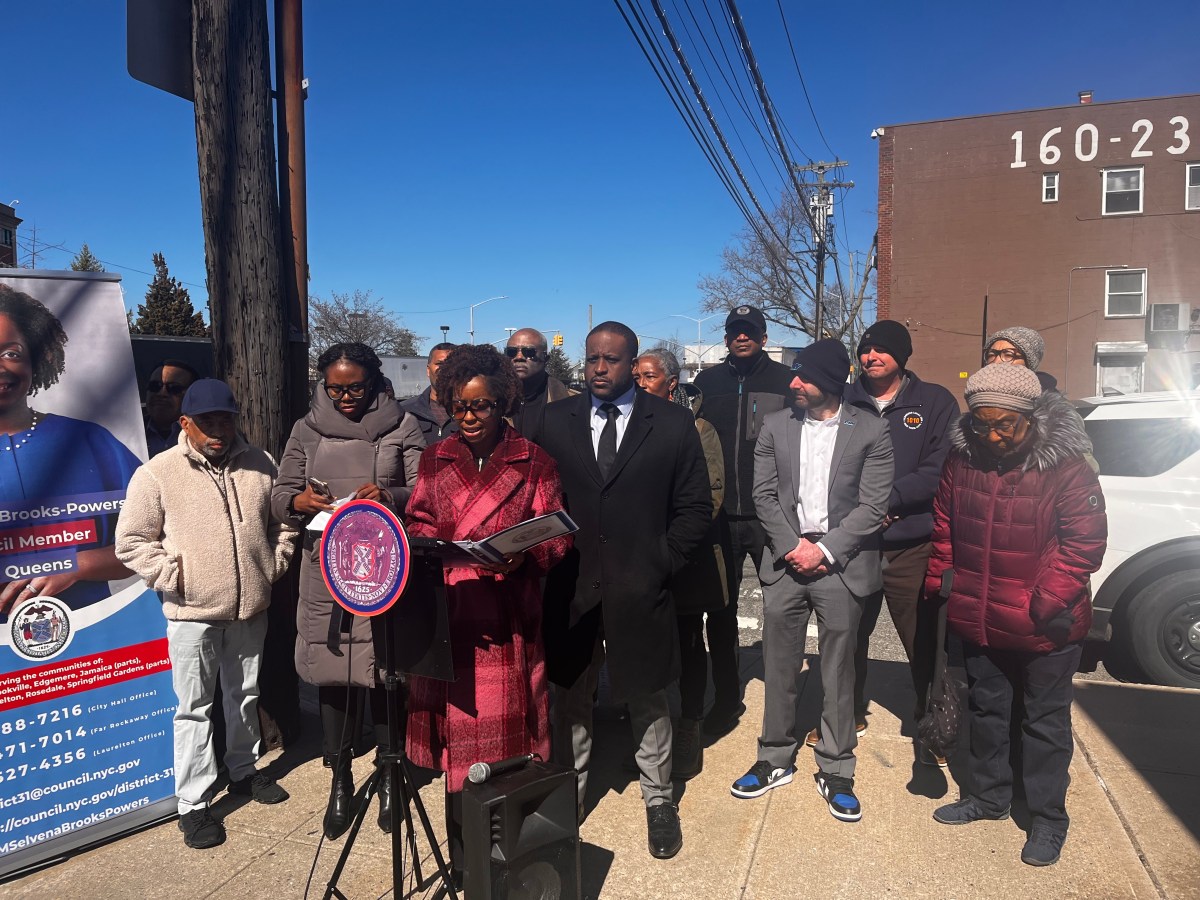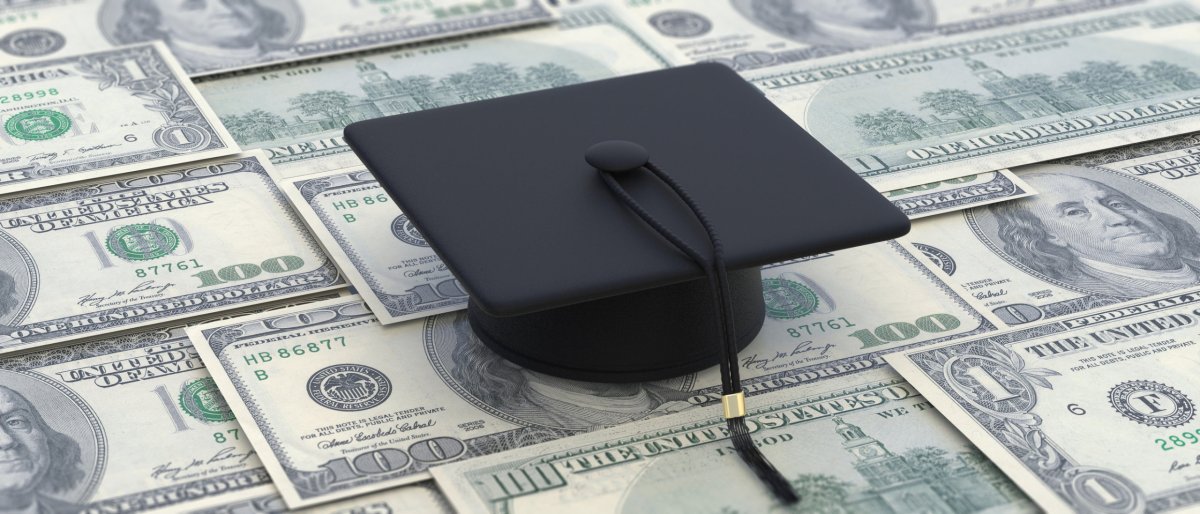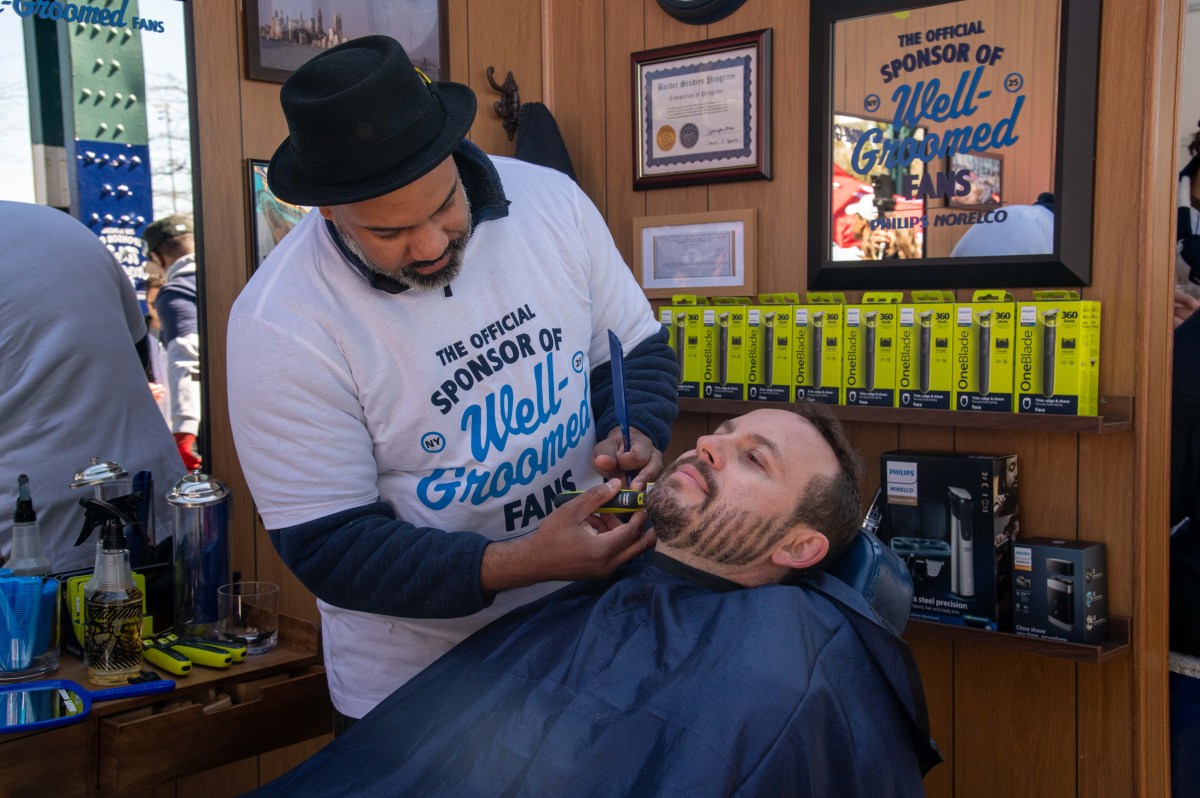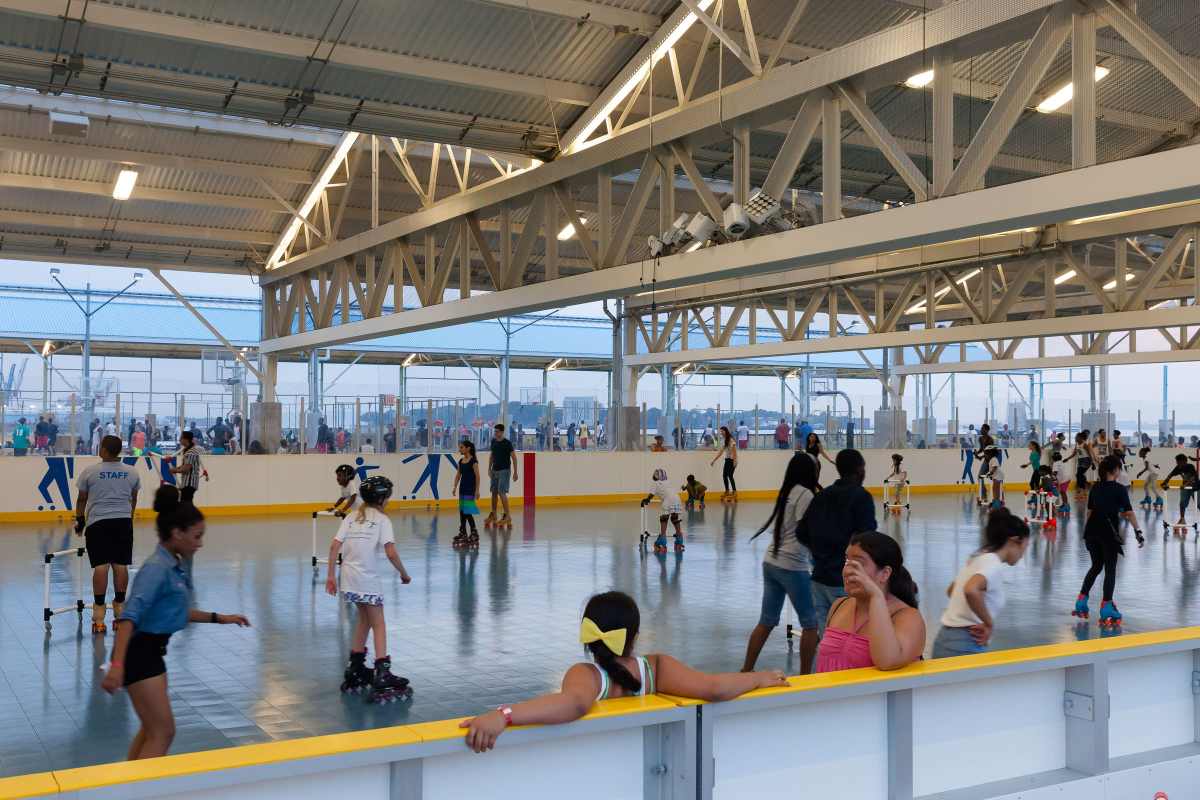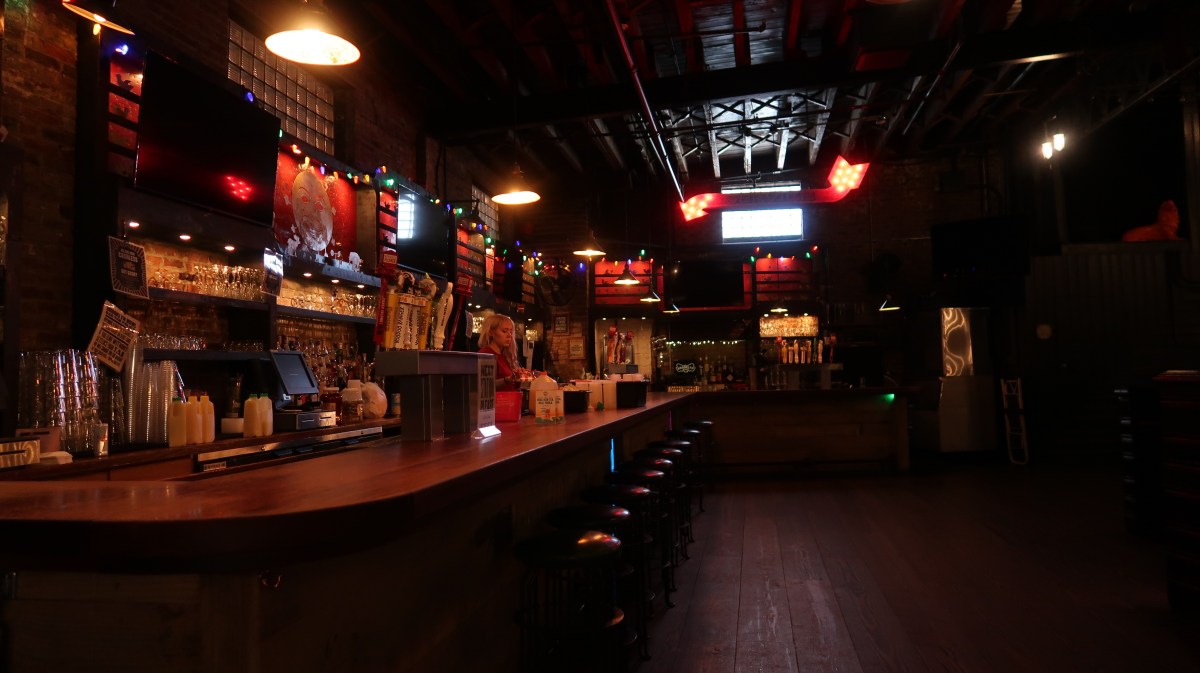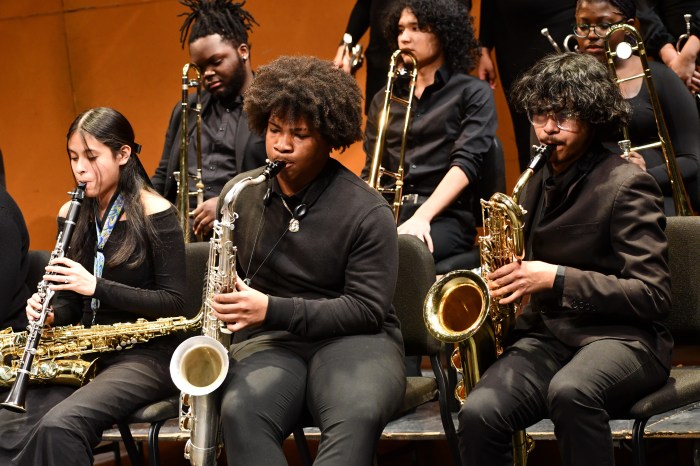With little surprise, riders massed at MTA headquarters on Thursday to decry the fare hikes the agency plans to implement this summer on subways, buses, paratransit, and commuter rails, at the first public hearing on the proposal.
In May, the MTA proposed a fare hike that would bring the cost of a subway or bus ride from $2.75 to $2.90, the first increase in the base fare since 2015. A weekly unlimited pass would increase by $1 from $33 to $34, while a monthly unlimited pass would go from $127 to $132 and express bus rides would increase from $6.75 to $7.
The MTA wants to implement the fare hikes by Labor Day. But in an environment where the price of food, housing and virtually everything else is rising, riders say they cannot afford a fare increase this summer.
“Something that may seem like just a couple of cents to you guys, it’s actually a life or death situation for many others,” said Sergio Cruz, a Bronx resident who attends City College, and qualifies for Fair Fares despite working three separate jobs.
Jackson Malkus, a City College faculty member, cited a 2021 report from the Center for an Urban Future which found affording a MetroCard to be the single largest barrier keeping CUNY students from completing their education.
“I’ve heard from pretty much the majority of these students how much of a challenge it is to be able to afford the MTA, to use transportation to get to school,” Malkus said at the hearing. “Because of inflation, students are already dealing with crazy costs for food, rent, other living expenses, on top of what they’re paying for their education.”
A number of other City College students also testified to the transit agency that the proposed 15-cent fare hike would break their budget and force them to choose between completing their studies and paying their rent.
“This is not only about 15 cents. It’s about a student’s future. A student’s future is a state’s future and a country’s future,” said Sumaya Tasneem, a student originally from Bangladesh. “Students dropping out from college for fare hikes or tuition fees should not even be a topic of conversation.”
The fare hike was authorized in the enacted state budget, which directed new dedicated sources of revenue to the MTA as it reels from the loss of ridership precipitated by the COVID-19 pandemic, including a payroll tax increase on city businesses and future revenue from casinos.
The agency was initially forecasting a 5.5% overall fare and toll hike as part of a plan to plug a $600 million-and-growing budget deficit, but the hike was lowered to 4% in the final budget deal, which included $65 million to keep the increase lower. Money was also included to increase subway frequency, and the MTA will soon be picking five bus routes around the city to pilot free service.
The MTA is also planning another 4% hike in 2025, which would bring the fare over $3 for the first time. The agency says regularly-scheduled fare increases are preferable to long periods without one, followed by a huge hike, such as 25% increases in 1981 and 2003.
“The theory is, and this is something that other transit properties are adopting, is that more frequent, smaller toll adjustments avert radical fare increases, as you saw in 2003,” said John McCarthy, the MTA’s chief of external affairs, during a presentation at the hearing. “And it allows our customers to have a predictable fare increase that tracks inflation.”
To alleviate riders’ anguish, the MTA is proposing modifying its “fare capping” program that allows free rides after 12 per week using OMNY, by applying it to any seven-day period instead of strictly Monday through Sunday.
The MTA is also putting its weight behind Fair Fares, the city’s half-price MetroCard benefit for low-income residents. The City Council has proposed doubling eligibility for Fair Fares from 100% to 200% of the federal poverty line. In dollar values, that doubles the annual income threshold from $14,580 to $29,160 for individuals and $30,000 to $60,000 for families of four, bringing scores into the program.
Mayor Eric Adams has not signaled support for the move in the upcoming city budget, which is due on July 1.
“The mayor promised to fight for public transit riders and he must deliver for us by expanding Fair Fares for people earning barely more than poverty wages in his budget due next week,” said Danna Dennis, the Riders Alliance’s senior organizer, in a statement. “Mayor Adams says he’s against a fare hike, but talk is cheap, and the budget is his moment to put his money where his mouth is and cut the fare for a million struggling low-income riders.”
Read more: NYC Mandates Zero-Emission Vehicles for Uber, Lyft by 2030
